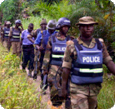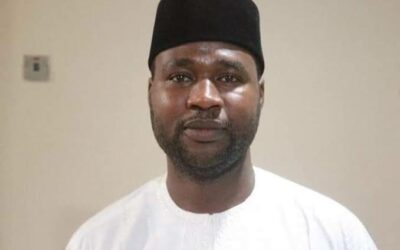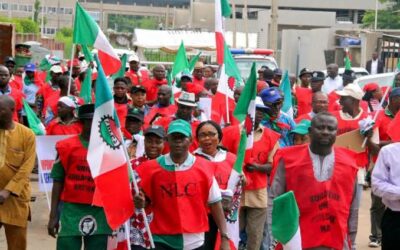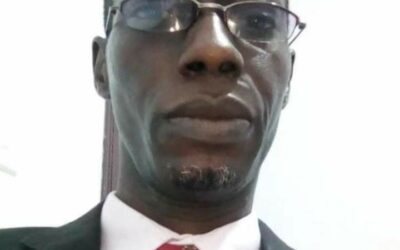THE Nigeria Police Force is reputed globally for excellence in international assignments. Since Independence in 1960 when it undertook peacekeeping operations in Congo Brazzaville, it has won admiration as perhaps the best police in the world. It has habitually won the most prestigious prizes for peacekeeping operations in Namibia, former Yugoslavia, Liberia, Haiti, etc.This fact has bolstered Nigeria 's image. I remember how proud I felt in 2008 in New York when I led the Nigerian delegation to receive a coveted United Nations prize for the heroic performance of our officers in Haiti . There are a number of Liberians, especially the female folk, eager to join their country's police force who are daily inspired by the spectacular conduct of Nigerian policemen and women serving in their country under the UN peacekeeping office. I am proud also to note that the first person to win an Olympic Gold medal for Nigeria , Chioma Ajunwa, is a police officer.
It is a supreme irony that the excellence which the Nigeria Police Force has demonstrated on the global scene has yet to be reflected adequately at home. What police officers serving at home receive as salaries and allowances are a fraction of what they get while on international engagements where they are paid promptly and their lives well insured. There is always an abundance of state-of-the art work facilities when carrying out international assignments. In addition, their office and living accommodations are of standard, and the people in their host countries co-operate with them most effectively by supplying them with critical information and intelligence reports.
It is, therefore, a thing of joy that the Nigerian government has finally taken concrete steps to address the major obstacles against the maximum performance of the police at home. The government set up in 2008 a committee of experts led by a brilliant former Inspector General of Police, M.D. Yusufu, to look into ways not just to modernise the police force, but also reform it. The committee made 125 recommendations, which the government has accepted and is, in fact, implementing. The recommendations cover areas as wide and diverse as recruitment, training, re-training, logistics, welfare, among others. I will in the new year rely on the White Paper as the "Road Map" to effective and efficient policing in Nigeria. My administration has also adopted and will continue to adopt an intelligence-based policing approach which has proved to be one of the best policing strategies in the world. We need to partner with all stakeholders especially, the local communities in our quest to achieve our desired results. This is because such pro-active approach reduces crime, makes for better security and safety and overall enhancement of quality service delivery.
To fulfil its obligations as the primary law enforcement institution in the country, the force under my leadership is focused on returning the Nigeria Police Force to its core values of discipline and professionalism which are fundamental to our main roles of crime prevention and maintenance of law and order. To achieve these measures, I have concentrated on capacity building of the entire personnel of the force in order to propel the Nigeria Police to meet the challenges of the 21st Century.
Our broad focus will be:
• training and re-training of officers to enhance their performance;
• improvement of welfare conditions for personnel;
• adoption of contemporary policing strategies to close "security reassurance gaps", improve police legitimacy through constructive engagement with the community and removal of inherent deficiencies of traditional reactive policing method;
• renewed commitment to fighting violent crimes; and
• implementation of the administrative aspects of the White Paper on Police Reform.
We have already commenced quality training and re-training of personnel which we believe is the fulcrum through which the force endeavours to empower its personnel to realise our broad focus. To this, various training programmes are being undertaken at police training institutions across the country. These include:
• Squadron Commanders' Course at the Police Mobile Force Training School, Ila-Oragun, Osun State, to equip the anti-riot unit of the force with the requisites of public order policing;
• training of officers for the pilot scheme of strategic crime prevention and control plan in seven cities at the Police College , Kaduna ;
• cadet officers' training at the Police Staff College , Jos, and the Police Academy , Kano ;
• promotion and in-service training at police colleges; and
• specialist courses at the Detective College, Enugu .
The Human Rights section of the force is being strengthened with a view to aligning the activities of members of the Force with internationally acceptable standard. The force is emphasising the importance of micro-accountability as a way of subjecting the conduct of police officers to the dictates of the rule of law. The impact of this awareness is the fall in the number complaints on rights' abuses and litigation against the Police. I have also established a Special Monitoring Unit to checkmate the excesses of overzealous and erring personnel.
In acknowledging the dedication to duty by police personnel who work relentlessly in pursuit of the goals of maintaining law and order, I have directed the immediate payment of shift allowances to officers and men of the Nigeria Police on monthly basis as a form of motivation. This is part of the new welfare scheme of the present administration. The directive has already been complied with.
The force is improving on its inter-agency partnership with other security agencies in the country to consolidate the fight against crime. This cooperation is being strengthened through joint crime operations and training programmes. The Nigeria Police are conducting training for officers of the Nigerian Customs in Kaduna and Lagos, Air Force and Naval personnel at the Police Detective College in Enugu while police trainers are deployed to the EFCC Training School to assist operatives on weapon handling and musketry.
The Nigeria Police continue to play a very important role in global peacekeeping operations, making Nigeria the largest police contributing country in Africa and the third in the whole world after Jordan and Bangladesh. In order to continue to fulfil this mandate, the force has increased the capacity of its Peacekeeping Training School in Wuse, Abuja, to maintain a pool of personnel for deployment on short notice.
Despite the various security measures undertaken and successes recorded, I am not under any illusion that there is need for improvement in the fight against crime and the revitalisation of police operations to meet increasing security demands. Major challenges inhibiting the onslaught against crime remain inadequate funding and logistic problems. It is evident that budgetary allocation to the police is insufficient to cater for every security need of the country. Current efforts of the government aimed at enhancing budgetary allocation to the Police and seeking alternative funding sources to implement the White Paper on Police Reforms are steps that would mitigate some of the challenges we face.
Various pro-active measures put in place in the last few months have yielded positive results. In general, there has been a marked decrease in the rate of crime in the country. Cases of thuggery, ethnic clashes and other violent crimes are declining. Also, we are irrevocably committed to ensuring the successful implementation of the amnesty programme of the Federal Government in the Niger Delta Region.
In the course of our onslaught against violent crimes in the country, the following successes have been recorded:
• Arrest of a total of 1,848 armed robbers;
• Recovery of 335 assorted arms including 1 Rocket Launcher, 5 Rocket Propellers, 3 rockets and 2 General Purpose Machine Guns (GPMG);
• Recovery of 31,510 ammunition;
• Recovery of 129 stolen vehicles; and
• The sum of two hundred and eighty-two thousand, three hundred US dollars ($282,300) recovered from suspects in Kogi State .
Furthermore, faced with the serious issues of kidnapping and armed robbery in the Southeastern part of Nigeria, I deployed several units of PMF personnel to stabilise the situation. The results have been encouraging. Some suspects have been arrested while we are on the trail of others. We shall continuously update the media on the happenings in this regard, as long as it will not jeopardise police investigation and strategy.
The FIFA U-17 World Cup hosted by the country was a resounding success at least in terms of security. The 15,000 men and women in both mufti and uniform trained to provide security in all the venues ensured that there was not one single ugly incident anywhere. FIFA has just commended it for this achievement.
Onovo was appointed the Inspector General of Nigeria Police last July.




